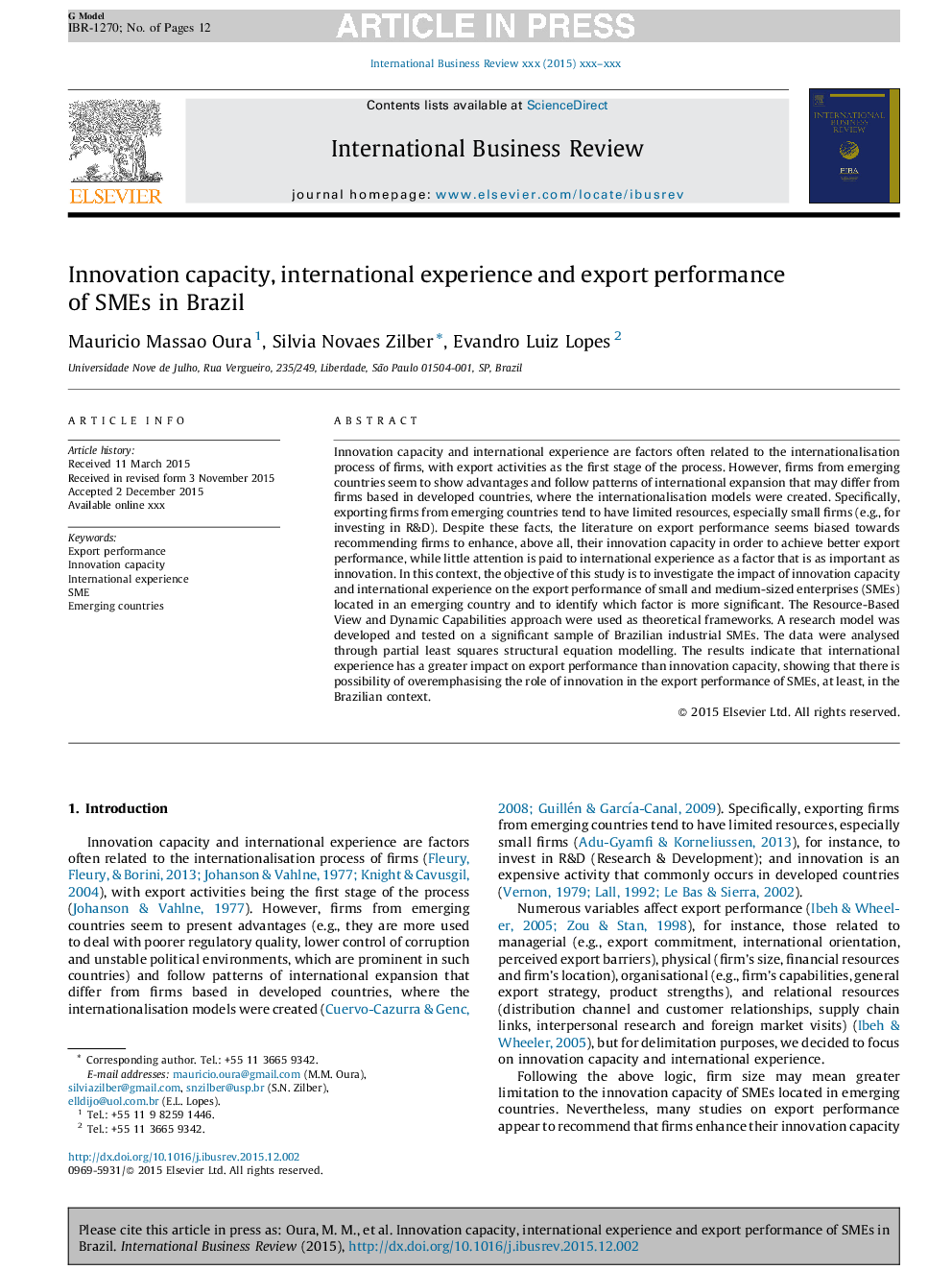| Article ID | Journal | Published Year | Pages | File Type |
|---|---|---|---|---|
| 10488097 | International Business Review | 2016 | 12 Pages |
Abstract
Innovation capacity and international experience are factors often related to the internationalisation process of firms, with export activities as the first stage of the process. However, firms from emerging countries seem to show advantages and follow patterns of international expansion that may differ from firms based in developed countries, where the internationalisation models were created. Specifically, exporting firms from emerging countries tend to have limited resources, especially small firms (e.g., for investing in R&D). Despite these facts, the literature on export performance seems biased towards recommending firms to enhance, above all, their innovation capacity in order to achieve better export performance, while little attention is paid to international experience as a factor that is as important as innovation. In this context, the objective of this study is to investigate the impact of innovation capacity and international experience on the export performance of small and medium-sized enterprises (SMEs) located in an emerging country and to identify which factor is more significant. The Resource-Based View and Dynamic Capabilities approach were used as theoretical frameworks. A research model was developed and tested on a significant sample of Brazilian industrial SMEs. The data were analysed through partial least squares structural equation modelling. The results indicate that international experience has a greater impact on export performance than innovation capacity, showing that there is possibility of overemphasising the role of innovation in the export performance of SMEs, at least, in the Brazilian context.
Related Topics
Social Sciences and Humanities
Business, Management and Accounting
Business and International Management
Authors
Mauricio Massao Oura, Silvia Novaes Zilber, Evandro Luiz Lopes,
